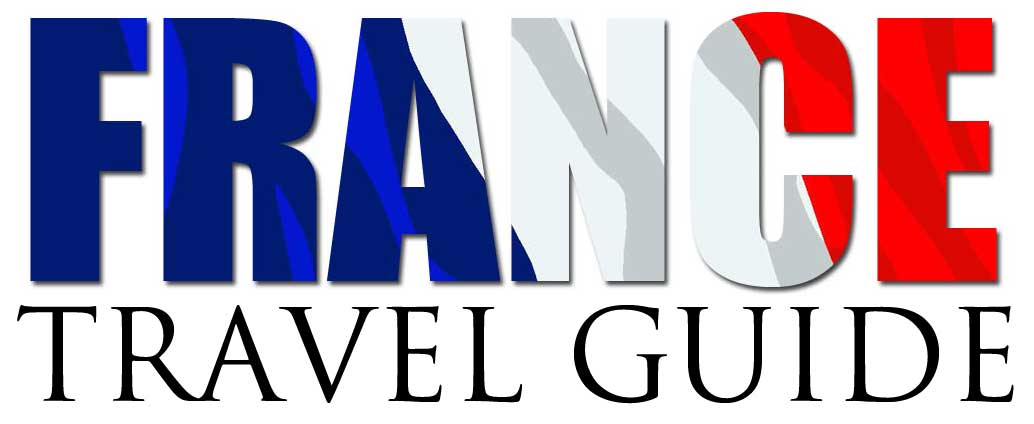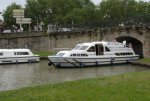CYCLING IN FRANCE
Cycling in France is a national sport, you might think. Travel through rural or mountainous France on a warm summer’s day and you’ll be forgiven for thinking that and you wouldn’t be far wrong; moreover, you have only to watch the Tour de France on television to realise that.
If you are driving around at weekends in France, it is advisable to look out for cyclists – either groups of speeding cyclists on expensive bicycles preparing for, or taking part, in local races; or just individual cyclists or families out for an afternoon ride. That is the norm almost all year round. In the summer months, you may well encounter cyclists tackling the mountainous sections used in the Tour de France, with varying degrees of success.
'Accueil Vélo' is a French label that guarantees a good service and welcome for cyclists. Accommodation, restaurants, operators and tourist offices with this label provide specific services for cyclists, such as garages for bikes, tools, bike washing areas, luggage transport, specific menus and advice.
OUT AND ABOUT CYCLING IN FRANCE
By far the largest
opportunity for relaxed cycling in France is provided by the vast network
of secondary roads and country lanes. France has some 951,200km (594,500 miles)
of roads and almost all of them are open to cyclists. The vast majority of the
network is composed of very minor byways, where traffic is light, and heavy
vehicles few and far between. Cycling conditions on these roads are generally
safe to very safe, meaning that cycling holidays can be planned throughout the
country.
However, even safer than the road network is the constantly developing network of cycleways which, if it does not yet fully criss-cross France, does offer thousands of kilometres of dedicated tracks, where the most serious hazards are likely to come from pedestrians or wildlife.
KNOW THE RULES OF THE ROAD
Cyclists in France are warned to pay attention to the state of their bikes and rules of the road to avoid fines of up to €375.
The biggest fines concern the wearing of helmets. Since March 2017, the law states that it is obligatory for children under the age of 12 to wear a helmet at all times when on a bike.
This applies whether the child is riding themselves or is a passenger on a larger bike. Adults accompanying or leading an offending child risk a default fine of €135, varying between €90 and €375, depending on the situation.
All cyclists - adults and children - need to ensure that their bike is in good condition, especially if they cycle on roads or lanes that are also used by cars; whether in town centres or in more rural zones.
This includes having working brakes on both wheels, pumped-up tyres with sufficient tread, a supportive and safe saddle, and tightened bolts on parts such as wheels and handlebars.
Bikes must feature reflective stickers, panels or lights; with a red-coloured light or reflective label at the back; and orange reflectors on the pedals. Lights and reflectors must also be visible from behind and the sides.
Bikes must also be able to alert others to their presence, either with a horn or bell, that is audible from at least 50m away.
Riders who do not conform to these conditions risk a fine of at least €11 per bike, rising to €33 if not paid within 30 days.
At night-time, or when visibility is poor, bikes must have a strong red light at the back, as well as a white or yellow lamp in front. Riders must also wear a reflective tabard at all times at night or during low visibility, and risk an additional fine of €22-€75 if they do not.
It is also advised to have two different kinds of locks, including a strong “D” lock for the frame, and another to loop through the wheels, when securing your bike in a town or village.
www.connexionfrance.com
TERMINOLOGY
Cycle-way: marked bicycle route either on dedicated way or
on minor byways.
Veloroute: or 'Voie verte': dedicated cycle route with smooth, tarred surface.
Hard surface: graded compacted hard surface: smooth cycling.
Unsurfaced: usually a rural track or towpath with old gravel surface.
More information is available from Les Véloroutes et Voies Vertes de France (www.af3v.org).
Many years
ago, my father-in-law (not, in the end, to be) would regularly take himself off
for a ride, never covering less than 100km. It was when he decided to get me to
accompany him on a ride from Lyon to Bresse to see some chickens, the famed
Poulet de Bresse, that I realised how mad he must be...lovely man though he
was. When we left our bikes propped against a wall, I was concerned they might
be stolen: 'Non,' he said. En France, un homme pourrait voler la femme de
quelqu'un, mais jamais un vélo.' ('In France, a man might steal someone's wife, but never a bicycle.') Fair
enough, I thought.
SEARCH THIS WEBSITE

Recent Articles
-
Eiffel Tower Facts And Eiffel Tower Information If You Visit Paris
Apr 28, 19 01:12 PM
20 amazing Eiffel Tower facts and alll the essential Eiffel Tower information you need if you're planning to visit this astonishing Paris landmark.
-
Free WiFi in Paris - How to Access Free Internet in Paris France
Apr 22, 19 05:28 AM
Paris WiFi is a free internet service offered by the Ville de Paris. On this page we'll explain how to access free wifi in Paris and free WIFI in France
-
Boating in France Enjoy French Canal Holidays or Hire a Boat in France
Apr 19, 19 02:25 PM
Experience the natural beauty of rural France from its waterways. Boating in France and enjoying French canal holidays offers the ultimate in relaxation.


